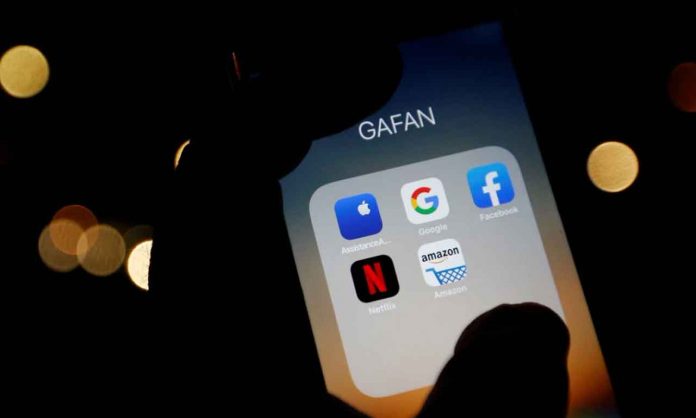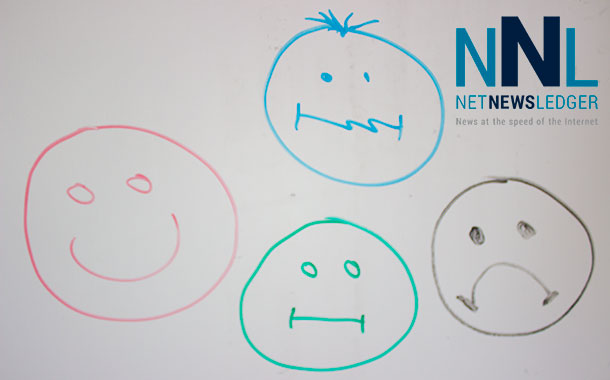With iPhone sales halted and popular payment wallets offline, ordinary Russians face disruption as major tech companies respond to sanctions and political pressure over Ukraine invasion
- Companies reduce access amid sanctions, political pressure
- Google Pay, Apple Pay outages hit ordinary Russians
- People rely on Facebook, YouTube for information
By David Sherfinski
GENEVA – (Thomson Reuters Foundation) – As Russians lose access to some popular Big Tech products, the Ukraine crisis has highlighted the companies’ mushrooming role in everyday life worldwide – and their potential to disrupt it.
The availability of some Google and Apple products and services in Russia has been cut in recent days as international sanctions imposed on Moscow over last week’s invasion have added to political pressure for the companies to act.
Highlighting the potential for disruption when Big Tech services are shut down, a viral image this week showed commuters packed into a Moscow metro station foyer as the city’s transport department warned of issues with Apple Pay and Google Pay.
Russia’s central bank said last week that cards of banks that fell under international sanctions – including VTB Group, Sovcombank, Novikombank, Promsvyazbank, and Otkritie – would not be able to be used with the digital wallets.
The disruptions were “striking” and highlight how much people around the world depend on a handful of tech companies for basic services, said Corynne McSherry, legal director at the Electronic Frontier Foundation, a digital rights group.
“What we really need is a much larger group of companies, each of which have a little bit less power so that other options are available for folks,” she said.
“(The current situation is) a very dangerous place to be in,” she added.
Many people in Russia have come to rely on the mobile pay services from Apple and Google to grab a coffee or go shopping, said Andrei Soldatov, a Russian investigative journalist.
“It’s very visible – you feel it and experience this kind of thing in your everyday life,” said Soldatov, a nonresident senior fellow with the Center for European Policy Analysis, a nonprofit group.
Kent Walker, Google’s president of global affairs, said in a blog post this week that as individuals, regions and institutions including banks are sanctioned, products such as Google Pay “may become unavailable in certain countries”.
NO MORE IPHONES?
The West has imposed heavy restrictions and sanctions on Russia to close off its economy from the global financial system, pushing companies to halt sales, cut ties and dump tens of billions of dollars’ worth of investments.
On top of the payment wallet curbs, Apple announced this week it would pause product sales in Russia, saying it was “deeply” concerned about the invasion of Ukraine.
Apple’s step came after a direct appeal by Ukraine’s Vice Prime Minister Mykhailo Fedorov to Chief Executive Tim Cook.
The move could end up steering mobile users to android devices and gadgets made in China, which may be more vulnerable to hacking and surveillance, said Sarkis Darbinyan, chief legal officer with the digital rights group Roskomsvoboda.
“It is not clear how this can help improve the situation in Ukraine at all if ordinary Russian citizens are deprived of mobile phones and laptops?” Darbinyan, who is based in Moscow, said in a Telegram message.
“This will make the situation with human rights (worse) and hit a large number of people at risk.”Apple’s move is a “huge blow”, Soldatov said.
“Everybody in big cities are talking about it – that’s probably the last iPhone we can buy right now,” he said.
The tech companies’ clout has made them a focus for political pressure in the Russia-Ukraine conflict.
In a tussle with Moscow over the control of information about the conflict, social media platforms Facebook, Twitter, and Google’s video streaming service YouTube have taken measures to stop Russian state media making money from ads on their sites.
Russia said last week it would partially restrict Facebook, a move Meta said came after it refused a government request to stop independent fact-checking of several Russian state media outlets, but the company has vowed to maintain user access.
For free-speech advocates, the platforms are more vital than ever as state media tries to carefully control and monitor the flow of information about the conflict.
“In countries like Russia, Facebook is still a force for good,” said Soldatov.
“If you have liberal Russian voices, it’s on YouTube and people are getting really nervous if Google decides to take down these channels – it would have a big impact.”
Reporting by David Sherfinski in Washington. Editing by Helen Popper. Credit the Thomson Reuters Foundation







